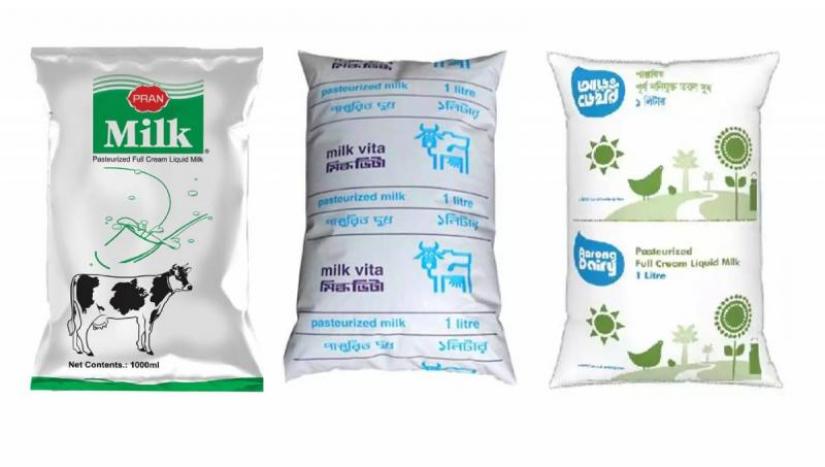 The Bangladesh Food Safety Authority (BFSA) found traces of lead in 11 out of the 14 pasteurized milk brands approved by Bangladesh Standards and Testing Institute (BSTI).
The Bangladesh Food Safety Authority (BFSA) found traces of lead in 11 out of the 14 pasteurized milk brands approved by Bangladesh Standards and Testing Institute (BSTI).
The findings were unveiled in front of the bench of Justice Nazrul Islam Talukder and Justice KM Hafizul Alam on Tuesday (Jul 16).
The 11 brands include: Milk Vita, Dairy Fresh, Igloo, Farm Fresh, Aftab Milk, Ultra Milk, Aarong Dairy, Pran Milk, Ayran, Pura, and Safe.
The food safety authority also found traces of cadmium, another hazardous substance for the human body, in a few samples among the 50 samples of raw milk they tested.
All the samples were tested in laboratories under Bangladesh Agricultural Research Institute (BARI), Bangladesh Council of Scientific and Industrial Research (BCSIR), Plasma Plus, WAFFEN Research, Atomic Energy Commission, and International Centre for Diarrhoeal Disease Research, Bangladesh (icddr,b), as per BSTI testing standards.
The court also directed the Bangladesh Food Safety Authority (BFSA) to submit a report before this court by July 28 on what action it has taken against adulteration of milk, curd and cattle feed.
On Feb 11, a National Food Safety Laboratory (NFSL) survey report submitted to the HC, found high levels of contaminants in milk and dairy products.
The court had also asked NFSL Dr Shahnila Ferdous to appear before the court on Jun 21 and describe the methods used to collect samples of milk.
The survey results had also prompted the same HC bench to order the authorities concerned to form a committee and find out how much contaminated milk, dairy products and cow fodders are supplied and sold across Bangladesh. It also wanted those responsible identified.
BFSA formed a 16-member committee on Feb 17, but it did not identify those responsible for the adulteration in its report.
The NFSL report said that molecular analysis found Total Plate Counts (TPC) and Coliform Counts (CC) above permissible limits in 93 out of 96 samples of raw milk, and salmonella in one sample.
Chemical analysis also found, above permissible limits, pesticides in nine samples, lead in five, aflatoxin in three, tetracycline in 10 and ciprofloxacin in one.
Tetracycline is a broad spectrum antibiotic often used on animals, while aflatoxins are poisonous carcinogens that are produced by certain molds which grow in soil, decaying vegetation, hay, and grains.
NFSL had also tested packaged milk samples — 21 local and 10 imported.
Of the local samples, molecular analysis found TPC and CC above permissible limits in 17 and molds in 14, while CC was above permissible limits in one sample of imported milk.
A day after the NFSL report was published, on Feb 11, the High Court, in a suo moto rule ordered the authorities, including the Anti-Corruption Commission, to identify the responsible companies.
The secretaries of food, agriculture, fisheries and livestock, and health ministries and the Cabinet Division, all members of BFSA, members of CFSMCC, and chairman of BSTI were made respondents to the rule.
Besides, the court had issued a ruling seeking an explanation as to why the inaction and failure of the respondents to stop the adulteration of cow milk and dairy products should not be declared illegal, and why those responsible for the adulteration should not be brought to book.


